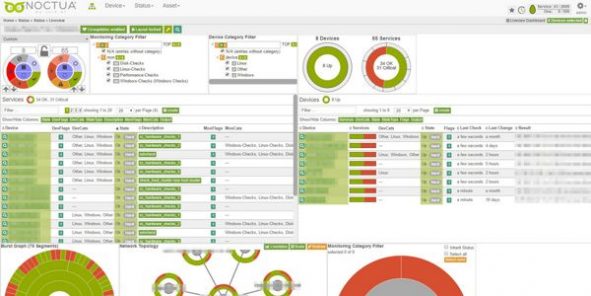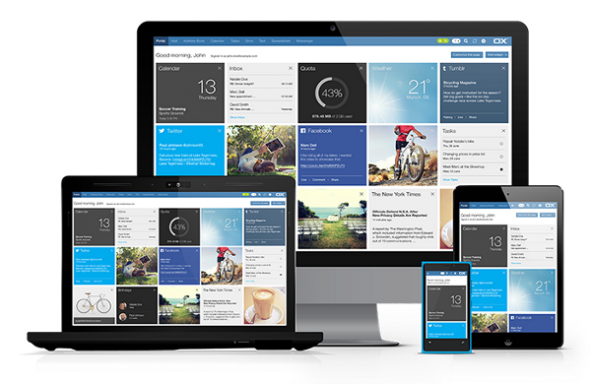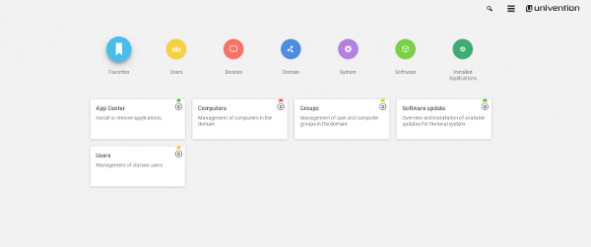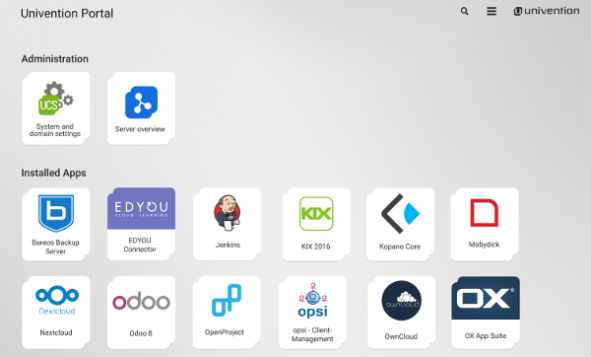Univention Blog
News, Tipps and Best Practices
Monitoring with NOCTUA® Athene for UCS 4.2 now in the Univention App Center

We are pleased to present the monitoring solution NOCTUA® Athene as a Docker-based app in the Univention App Center for UCS 4.2. NOCTUA® Athene is a flexibly configurable solution for the detection of failures on any number of systems, hardware and software. By using predefined protocols (e.g. SNMP, WMI, SSH, Ping, or SQL) as well as […]
First point release of UCS 4.2 published

With UCS 4.2-1 the first point release for Univention Corporate Server 4.2 is now available. It includes various detail improvements and error corrections. Some of the most important changes are: The forwarding of e-mails per each mail user can now be saved in the UCS management system. Improvements in changing the password in the Univention […]
Data Privacy-Compliant Integration of Office 365 in Fulda schools

The municipal authorities of the German city of Fulda in the state of Hesse are responsible for the administration and operation of the IT in 23 schools in Fulda – including 2 vocational schools and 2 grammar schools – for a total of 13,000 pupils and 1,000 members of teaching staff. Unlike in the rest […]
Kaspersky Security for Linux Mail Server 8.1 in the Univention App Center

The Kaspersky Security for Linux Mailserver app was developed by bitbone AG in cooperation with Univention and Kaspersky Lab support. The proven security product from Kaspersky is thus also available for the widely used Univention Corporate Server. Thanks to the adaptations, it can be easily installed and deployed via the App Center.
Facilitate Your Work by Integrating Listener Modules in UCS

Listener modules support you in your administrative work by synchronizing and controlling all changes in the UCS’ OpenLDAP Einacross all connected services – Learn how to build and use them! You are surely using a variety of (cloud) services in your organization and, if required, these services will make changes to your directory service, either Active Directory […]
OX App Suite – the whole office online

The groupware solution OX App Suite, available in the Univention App Center, is aimed at companies, educational institutions and public administrations looking for a modern and future-proof communication solution. OX App Suite is a modular communication and collaboration platform. It is based on open standards and can be used in combination with Univention Corporate Server […]
Brief Introduction: Two-Factor Authentication

As part of our “Brief introduction” series, you will learn today what is meant by two-factor authentication. If you are planning to use security software, you will surely stumble upon this term, as this method provides additional protection for your business when it comes to login processes, especially for data-sensitive areas. Often enough, it has […]
Univention Corporate Server 4.2 Released: Improved Operating Concept and lots of New Technology under the Hood

The most striking new feature of the Univention Corporate Server 4.2 release is the significantly further developed operating concept for all users – not only for the administrators, but also for the end users. In addition to new features such as the online portal, this is due to the smoother interface, faster ways to overview […]
Digitalization Package for Schools with Integrated E-Mail and Collaboration Functions

As a leading provider of Open Source-based IT infrastructure solutions, we have now “bundled” a new digitalization package for schools, in the knowledge that only secure, flexible, and user-friendly solutions allow the modernization of the IT infrastructure in education so desperately desired by politicians. To this end, we have comprehensively expanded our special solution tailored […]
Release Candidate of UCS 4.2 Now Available

Today, we have published the Release Candidate UCS 4.2. Highlight of the release is the new, freely configurable online portal, which you can flexibly adapt to your needs and the one of your organization. Further, a lot less obvious changes we have made are: We have updated the distribution base of UCS to Debian 8 […]